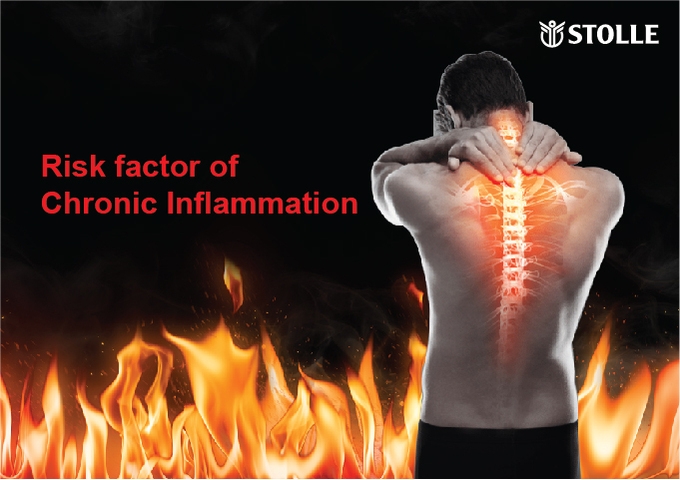What kind of bacteria in our gut? Do you understand your gastrointestinal system? The intestinal microbiota, or gut microbiome, is a crucial ecosystem within the human body. The stomach and intestines of humans house trillions of microorganisms, including various bacteria, fungi, and viruses, forming a highly complex ecosystem. Research has found that the human gut is home to hundreds of microbial species, with bacteria being the most diverse among them. This diversity is considered a vital factor in maintaining gut health. Within the human gut bacteria, only 10% to 20% of bacteria are shared among individuals. The rest of the microbial community varies from person to person, depending on factors such as dietary habits, lifestyle, and other individual factors. These microorganisms also influence human health, affecting appetite, weight, and mood. Some types of bacteria in the gut microbiome are considered beneficial to the human body. For instance, probiotics like lactobacilli and bifidobacteria help maintain the gut's acid-base balance, suppress the growth of harmful bacteria, and enhance immune system function. Studies have also shown that a healthy gut microbiome is associated with metabolic health, a lower incidence of obesity, and emotional stability. Conversely, an imbalance in the microbiota, such as an increase in harmful bacteria, has been linked to various diseases. For example, an imbalance in the gut microbiota is associated with inflammatory bowel diseases, metabolic disorders like type 2 diabetes, and mental health issues such as depression. The gut microbiome plays a crucial role in maintaining the balance of the human immune system. The presence of beneficial bacteria helps balance immune responses, preventing the overactivation of the immune system and reducing the risk of autoimmune diseases. When the gut microbiota is imbalanced, it can lead to abnormal activation or suppression of the immune system, impacting the body's ability to resist pathogens. This imbalance may lead to the immune system attacking its tissues, increasing the risk of autoimmune diseases, and causing abnormal activation of immune cells, leading to chronic inflammation and a decline in immune system function. Therefore, maintaining the balance of the gut microbiome is closely tied to sustaining our immune system. Over 60 years of research have resulted in more than 20 published scientific studies, 200 awarded patents and international quality awards. Patented bioactive factors such as specific IgG , secretory IgA, lactoferrin and anti-inflammatroy factors directly support the immune system by balancing immune responses Our exclusive milk protein concentrate ingredient enhances the immune effects 1.5 times Multiple health care functions (Clinically proven to help balance the immune system and meet nutritional needs of every life stage while also meeting the health needs of the entire family Manufactured by the largest dairy company in New Zealand, assuring the highest product quality Cows are fed year-round on all-natural New Zealand pastures that are scientifically managed, thereby ensuring the highest nutritional value If you are looking to boost your gut health, give Stolle ImmNuPlus a try! With Stolle ImmNuPlus, which is regarded as the best supplement for digestive health Malaysia, you can ensure your gut health is always at their fighting fit to keep illnesses at bay.
more


Dangerous of Passive Smoking In the ongoing discourse on smoking and its associated health hazards, the question of second-hand smoke has emerged as a significant concern. The consequences of inhaling second-hand smoke, also known as passive smoking, are not to be underestimated. Second-hand smoke is a combination of the smoke exhaled by a smoker (mainstream smoke) and the smoke emitted from the burning end of a cigarette (sidestream smoke). While not directly inhaling the mainstream smoke, individuals near a smoker involuntarily breathe in these harmful substances. Both mainstream and sidestream smoke contains a toxic cocktail of chemicals, including nicotine, tar, carbon monoxide, and numerous carcinogens. Studies have shown that secondhand smoke can be even more harmful than the smoke directly inhaled by the smoker because it is often more concentrated and lacks any filtering mechanism. According to data from the health department, the concentration of carbon monoxide in secondhand smoke is more than five times higher than that in car exhaust. Research from the World Health Organization (WHO) indicates a close association between passive smoking and various serious diseases: Respiratory Issues: Exposure to secondhand smoke is linked to respiratory problems, especially in children, and may lead to asthma and bronchitis. Cardiovascular Complications: Non-smokers exposed to secondhand smoke for extended periods may face an increased risk of heart disease and stroke. Cancer: Carcinogenic substances in secondhand smoke make it a potential cause of lung cancer in non-smokers. Data suggests that those exposed to smoking environments for prolonged periods have more than a 30% higher likelihood of developing respiratory diseases compared to those not exposed. Secondhand smoke not only harms individual health but also affects indoor air quality. According to environmental monitoring data, indoor smoking significantly increases the concentration of PM2.5, posing a potential threat to residents' respiratory health. Children and pregnant women are especially vulnerable to the effects of secondhand smoke. For children, exposure can result in developmental issues and an increased risk of sudden infant death syndrome (SIDS). Pregnant women exposed to secondhand smoke are more likely to experience complications such as premature birth and low birth weight. Stolle Milk is here to help maintain lung health and balance immunity! Developed with the concept of "maternal and child immunity," Stolle Milk contains 26 specific immune factors essential for the human body. It directly supports the immune system, achieving immune balance, reducing infections, and maintaining health. Additionally, research has confirmed that immune milk significantly reduces the damage to lung tissues caused by smoking and promotes immune cells' phagocytosis of debris, providing better protection for your lungs. It has obtained a patent for protecting the lungs (US4897265). It is the preferred choice for protecting your lungs!
more
Respiratory Disease Respiratory diseases are a category of illnesses involving the respiratory system, affecting the nose, throat, trachea, bronchi, and lungs. They include influenza, the common cold, asthma, pneumonia, tuberculosis, and more. In some cases, respiratory infections can lead to severe health issues, even life-threatening situations, especially for those with chronic conditions, making them a matter of significant concern. Common Colds and Influenza However, many people tend to underestimate respiratory diseases such as the common cold and influenza. This is because these illnesses are prevalent in populations, leading some to view them as common and mild rather than serious health problems. Some individuals might delay seeking medical attention due to underestimating symptoms, which can result in the disease being treated only when it has progressed to a severe stage. Moreover, during the rainy season, the incidence of respiratory diseases often rises. For instance, the rates of occurrence of influenza and the common cold increase by a significant percentage in humid climates. This is closely related to immunity. The immune system serves as our body's defense, protecting us by identifying and resisting pathogens. In the rainy season, the moist environment provides ideal conditions for viruses and bacteria to proliferate, highlighting the crucial importance of a robust immune system. To maintain a strong immune system during the rainy season, various measures can be taken. Firstly, practicing good personal hygiene, including frequent handwashing and proper ventilation, is an effective way to prevent the spread of respiratory diseases. Asthma Asthma is commonly considered one of the chronic respiratory diseases associated with allergies. Exposure to certain allergens can trigger an exaggerated immune response in asthma patients, leading to airway inflammation and muscle spasms. Allergic asthma results in chronic inflammation of the airways, which can cause narrowing and worsen breathing difficulties. Allergic asthma may be more prevalent in certain regions or communities, especially in urban or rapidly developing areas. Factors such as air pollution, lifestyle changes, and exposure to allergens in urban environments may increase the incidence of allergic asthma. Since the outbreak of the COVID-19 virus in 2020, respiratory system diseases, particularly those related to COVID-19, have become a significant cause of death. During the COVID-19 pandemic, respiratory infections, especially pneumonia caused by the novel coronavirus, could significantly impact mortality rates. However, other respiratory infections and chronic respiratory diseases (such as chronic obstructive pulmonary disease, tuberculosis, etc.) may also contribute to mortality rates to some extent. Stolle ImmNuPlus Effectively Builds Immune Balance: Over 60 years of research, 20+ scientific validations, holder of 200+ patents, internationally recognized for quality. Patented active factors, including Specific IgG and IgA, anti-inflammatory factors, macrophage activation factors, balanced immune response, directly supporting a balanced immune system. Simultaneously maintains digestive system health, protects the lungs, and stabilizes cardiovascular health. Exclusive concentrated essence of Guardian added, providing 1.5 times stronger protection. Offers various health benefits, meeting the health needs of different age groups throughout the year in a single solution for the entire family. Stolle obtained 200+ patents from worldwide:
more
Suboptimal Health and Chronic Inflammation In our fast-paced lives, it's not uncommon for individuals to experience a state of suboptimal health. This condition is marked by a range of vague symptoms such as fatigue, sleep disturbances, and a weakened immune system. Interestingly, a significant and often underestimated aspect of suboptimal health is its intricate relationship with chronic inflammation. Suboptimal health is a state characterized by a decline in physical vitality and functional reserve. It falls between the categories of being healthy and having a diagnosable illness. People in this state may not be acutely sick, but they often feel below their optimal well-being levels. Chronic inflammation, on the other hand, is a prolonged and dysregulated immune response. Unlike acute inflammation, which is the body's natural and beneficial response to injury or infection, chronic inflammation can persist over an extended period. It's increasingly recognized as a key player in the development of various chronic diseases, including cardiovascular diseases, diabetes, and certain cancers. The question arises: could chronic inflammation also be a driving force behind the manifestations of suboptimal health? The relationship between suboptimal health and chronic inflammation is often a two-way street. Suboptimal health conditions, such as poor dietary choices, lack of exercise, and chronic stress, can contribute to a pro-inflammatory environment in the body. In turn, chronic inflammation can exacerbate suboptimal health symptoms, creating a vicious cycle that undermines overall well-being. Immune System Dysregulation: Data illustrating immune system dysregulation in cases of suboptimal health further strengthens the connection. Changes in the balance of pro-inflammatory and anti-inflammatory factors suggest a compromised immune response, leaving individuals more susceptible to chronic inflammation. Lifestyle Factors: Unhealthy lifestyle choices, such as a sedentary routine, poor diet, and chronic stress, are common contributors to both suboptimal health and chronic inflammation. Analysis of inflammatory biomarkers, such as C-reactive protein (CRP) and interleukin-6 (IL-6), has revealed elevated levels in individuals experiencing suboptimal health. These markers serve as tangible indicators of systemic inflammation, hinting at a potential link between the two states. Breaking the Cycle: Nutrition: Adopting an anti-inflammatory diet rich in fruits, vegetables, and omega-3 fatty acids can help mitigate chronic inflammation. Physical Activity: Regular exercise has been shown to have anti-inflammatory effects, promoting overall health and well-being. Stress Management: Techniques such as mindfulness, meditation, and adequate sleep can play a crucial role in reducing chronic inflammation and improving suboptimal health. Add a cup of Stolle ImmNuPlus and ImmNuPro to your daily diet Rich in milk nutrients, patented immunonutrients and anti-inflammatory factory which directly supports the immune system, reduces chronic inflammation, activates immunity, achieve immune balance, and keeps disease threats at bay.
more
How to Alleviate Exercise Induces Muscle Soreness Post-exercise soreness is a common phenomenon experienced by many individuals after working out, which can impact our overall exercise experience and motivation. However, feeling sore does not necessarily mean you exercised incorrectly; it indicates that the stretching during exercise has reached a point of altering some muscle groups, which is a normal occurrence. In sports medicine, exercise-induced muscle soreness is generally categorized into two types: (i) Acute Muscle Soreness: Pain that occurs immediately after exercise but dissipates quickly. Lactic acid accumulation is often used to explain this. (ii) Delayed-onset muscle Soreness (DOMS) or Post-Exercise Fatigue: Pain that appears several hours or a night after exercise, accompanied by fatigue and, in some cases, symptoms like muscle spasms and stiffness. This type of muscle pain disappears more slowly, sometimes lasting up to 7 days. The causes of DOMS are complex and involve muscle damage and spasms. However, there's scientific evidence suggesting that through simple and effective methods, we can prevent or alleviate post-exercise muscle soreness. Warm-up Before Exercise: Adequate warm-up prepares the muscles and joints, relaxes them, accelerates blood circulation, and involves proper stretching of muscle groups. Restorative Exercise: Engaging in light restorative exercises such as jogging, swimming, or yoga significantly reduces post-exercise soreness. These activities help promote blood circulation, reduce muscle inflammation, and accelerate the removal of waste products, aiding the repair process. Protein Intake: Adequate protein intake is crucial for muscle repair and growth. Studies show that consuming protein after exercise can slow down muscle protein breakdown, promote synthesis, and help muscles recover faster. Static Stretching: Despite some controversy regarding its effectiveness in preventing exercise injuries, some studies suggest that moderate static stretching can reduce muscle soreness after exercise. Regular static stretching may contribute to increased muscle elasticity and flexibility. Cold-Hot Shower Alternating: Alternating between hot and cold showers has been proven beneficial in reducing post-exercise muscle pain and inflammation. This therapy improves blood circulation, facilitates waste elimination, and aids in faster muscle recovery. Adequate Sleep: Sleep is a crucial time for the body's repair and recovery. Insufficient sleep can impact the muscle recovery process. Scientific research indicates that adequate sleep can alleviate post-exercise pain and enhance the body's adaptability to training. "Stolle: Your Partner in Building a Healthy Physique, Minimizing Exercise Soreness!" Stolle ImmNuPro: High-quality protein source, rich in essential amino acids, effectively aiding in muscle protein breakdown and synthesis, promoting recovery from muscle soreness. Effective anti-inflammatory factors regulate allergies and soothe inflammation. Activates immune cells, and promotes IgA antibody production, contributing to a robust immune system and overall health. After exercising, consume a cup of Stolle ImmNuPro to assist in muscle exercise and repair, reduce soreness, and increase your body's stored energy for future needs!
more
Difference between Rheumatism Arthritis and Rheumatism Imagine you discovered swelling or pain in the joints part and were diagnosed with rheumatoid arthritis after a series of examinations. However, you couldn’t find out the cause or factor why you would suffer from rheumatism(arthritis). This clearly indicates a confusion between rheumatoid arthritis and rheumatism. Are rheumatoid arthritis and rheumatism the same thing? They are NOT. Rheumatoid arthritis and rheumatism are both diseases related to joints. Although they share some similarities, there are significant differences in many aspects, including symptoms, causes, and treatment methods. The wrong treatment plan could lead to missing the golden period of treatment. So, what's the difference between rheumatoid arthritis and rheumatism? Origin and Causes: Rheumatoid Arthritis: It is an autoimmune disease where the immune system mistakenly attacks the body's healthy tissues, causing inflammation around the joints. It is characterized by morning stiffness, prolonged joint stiffness after waking up, and affects organs such as the heart, lungs, and kidneys due to its autoimmune nature, leading to issues like vasculitis, neuropathy, malnutrition, etc. Rheumatism (or Rheumatic Diseases): Rheumatism refers to a variety of conditions that affect joints, muscles, ligaments, and bones. Rheumatoid arthritis is just one type of rheumatic disease. Unlike rheumatoid arthritis, rheumatism can also result from joint infections caused by bacteria, viruses, or fungi. Symptoms: Rheumatoid Arthritis: Symptoms include joint swelling, pain, restricted movement, fatigue, and possible skin damage. Typically, it affects joints symmetrically, meaning similar joints on both sides of the body are affected. Rheumatism (Rheumatic Diseases): Symptoms may include joint swelling, and pain, and may be accompanied by fever and overall discomfort. Arthritis is a common feature, affecting one or more joints. Treatment Methods: Rheumatoid Arthritis: Treatment plans are complex, focusing mainly on the immune system, inflammation control, and incorporating physical therapy and moderate exercise. Rheumatism (Rheumatic Diseases): Treatment primarily targets arthritis inflammation and preventing infections. In addition to early diagnosis and treatment, daily habits, including diet and lifestyle, are crucial for managing these two diseases. Let's work together with Stolle to resist inflammation and create a life without inflammation! Prevent Inflammation Naturally With Stolle ImmNuPlus and Stolle ImmNuPro Add a cup of Stolle ImmNuPro which rich in patented MPC and anti-inflammatory factors, it helps alleviate and improve the inflammatory symptoms of redness, swelling, pain, and heat. It also contributes to reducing the damage that inflammation can cause to the body.with 5 unique anti-inflammatory benefits daily, including: Reduce Autoimmune disease Reduce allergic inflammation Reduce joint discomfort Reduce intestinal inflammation Reduce overall inflammation ImmNuPlus with patented bioactive factors such as specific IgG , secretory IgA, lactoferrin, and anti-inflammatory factors directly supports the immune system by balancing immune responses
more
Don't Overlook Periodontitis When we talk about health, we often focus on diseases such as heart disease, diabetes, and cancer, while paying little attention to oral health. However, do not underestimate oral health, especially when it comes to periodontitis. This oral disease not only affects your teeth but may also have profound implications for your overall health. Periodontitis is a common oral disease typically caused by bacterial infection. This disease results in inflammation of the gums and damage to the supporting structures of the teeth. Initial symptoms may include gum bleeding, redness, and bad breath, which are easily overlooked. If left untreated, periodontitis can progress into more severe forms, even leading to the loss or lost teeth. The seriousness of periodontitis extends beyond oral health. Multiple studies indicate a close connection between periodontitis and systemic health. Here are some key data: Cardiovascular Disease: Periodontitis is associated with an increased risk of heart disease and stroke. Inflammation triggered by periodontitis can lead to atherosclerosis, increasing the risk of cardiovascular events. Diabetes: Periodontitis can make diabetes more challenging to manage. High levels of inflammation may affect insulin's effectiveness, causing elevated blood sugar levels. Pregnancy Complications: Pregnant women with untreated periodontitis may face the risk of preterm birth, low birth weight, and other complications. Respiratory Infections: Oral bacteria can enter the respiratory tract through inhalation, increasing the risk of lung infections. Given the potential threat that periodontitis poses to overall health, prevention becomes paramount. Here are some recommendations: Regular Dental Check-ups: Visit the dentist regularly for cleanings, check-ups, and early treatment of gum issues. Maintain Good Oral Hygiene: Brush and floss daily, and use mouthwash regularly. Healthy Diet: Diet plays a crucial role in gum health. Avoid high-sugar and high-acid foods, and increase your intake of fiber-rich fruits and vegetables. Quit Smoking: Smoking increases the risk of periodontitis. Quitting can help improve oral health. Stolle WPC Toothpaste contains a globally exclusive patented immune milk concentrate protein MPC and has obtained two major patent certifications: "Cavity Prevention Patent" and "Anti-Inflammatory Patent": It contains active immunoglobulins, which can remove dental plaque, reduce the occurrence of cavities, and maintain dental health. It contains anti-inflammatory factors, which can alleviate gum inflammation and maintain gum health. Furthermore, in your daily diet, consider adding Stolle ImmNuPro which is also based on patented immune milk concentrate protein MPC. It effectively alleviates chronic inflammation in your body, both inside and out, helping you create a "Zero Inflammation Lifestyle"!
more
Risk factors of Chronic Inflammation Inflammation is the body's natural response to combat infections and injuries. However, when inflammation goes uncontrolled or becomes chronic, it can lead to various health issues. Different Types of Inflammation Acute Inflammation: Acute inflammation is a short-term, self-limiting response that typically occurs rapidly after an infection or tissue injury. Symptoms include redness, pain, and local heat. This type of inflammation aids in clearing infections and promotes wound healing. Chronic Inflammation: Chronic inflammation is a persistent and gradually worsening state of inflammation that can last for months or even years. Unlike acute inflammation, chronic inflammation does not typically resolve on its own and can occur throughout the body or in specific tissues. Multiple studies have confirmed its association with various diseases such as cardiovascular diseases, diabetes, and certain cancers. Mechanisms of Chronic Inflammation The development of chronic inflammation involves multiple biological and molecular mechanisms: Initial Inflammatory Event: Chronic inflammation may stem from an initial inflammatory event, such as an infection, tissue injury, autoimmune response, or other inflammatory triggers. During this stage, the immune system releases inflammatory mediators, such as cytokines and chemokines, to attract immune cells to address the issue. Overactive Immune System: In normal circumstances, the immune system recognizes and attacks infections, but an overactive state may lead to attacks on healthy tissues. This can be caused by infections, autoimmune diseases, or prolonged exposure to irritants. Cellular Damage and Repair: Prolonged inflammation can cause damage to tissue cells, while immune cells attempt to repair this damage. However, in chronic inflammation, this damage and repair cycle can alternate, leading to further tissue damage and potential organ dysfunction. Release of Inflammatory Mediators: Chronic inflammation is often accompanied by the release of numerous inflammatory mediators, such as cytokines, chemokines, and inflammation-regulating proteins. Persistent signalling keeps the immune system continuously active. These molecules attract white blood cells to damaged tissues, intensifying inflammation. This might involve persistent infections, tissue damage, or other ongoing stimuli, such as tumor cells. Factors Influencing Chronic Inflammation Various factors influence the occurrence of chronic inflammation, including: Genetic Factors: An individual's genetic background may increase their susceptibility to chronic inflammation. Certain genetic variations have been associated with susceptibility to chronic inflammation. Lifestyle: Diet, exercise, body weight, smoking, and alcohol consumption significantly impact chronic inflammation. Unhealthy lifestyles may increase the risk of chronic inflammation. Environmental Factors: Exposure to pollutants, chemicals, and excessive stress can also trigger chronic inflammation. Prevent Inflammation Naturally With Stolle ImmNuPlus and Stolle ImmNuPro To reduce the risks of chronic inflammation, consider incorporating a daily dosage of Stolle ImmNuPro with 5 unique anti-inflammatory benefits, including: Reduce Autoimmune disease Reduce allergic inflammation Reduce joint discomfort Reduce intestinal inflammation Reduce overall inflammation ImmNuPlus with patented bioactive factors such as specific IgG , secretory IgA, lactoferrin, and anti-inflammatory factors directly supports the immune system by balancing immune responses Remember to enjoy a daily dose of Stolle ImmNuPro and ImmNuPlus and adopt a healthy lifestyle along with personal risk management to reduce the risk of chronic inflammation. Immune Today, Healthy Everyday!
more
Why Anti-Inflammation is Important In the physiological balance of the human body, inflammation is a normal part of the immune system's response. Its process includes blood vessel dilation, increased blood flow, white blood cell accumulation, etc, for the purpose of clearing pathogens, dead cells, and cell debris from the area of injury. This short-term inflammation is crucial for protecting the body from infection. However, when inflammation becomes chronic, it can have negative effects on health. Chronic inflammation is considered a stimulator behind several chronic diseases, including cardiovascular diseases, diabetes, cancer, cognitive decline, and more. Prolonged inflammation can lead to tissue damage, and organ dysfunction, and even disrupt the body's immune balance. Inflammation has also been closely associated with the aging process; chronic inflammation may accelerate cellular aging, causing a decline in the function of various body systems. Therefore, the importance of anti-inflammation lies in maintaining immune balance, preventing diseases, and keeping the body in its best state. Here are some effective ways: 1. Healthy Diet: Choose foods rich in antioxidants, Omega-3 fatty acids, various vitamins, and minerals. Include plenty of vegetables, fruits, whole grains, nuts, and fish in your diet, as these foods help reduce inflammation. 2. Maintain a Healthy Weight: Obesity is a risk factor for chronic inflammation. Maintaining a proper weight can reduce the risk of chronic inflammation. 3. Moderate Exercise: Regular physical activity can enhance immune system function, but over-exercising can have the opposite effect and increase the risk of inflammation. Maintaining moderate exercise like walking, swimming, yoga, etc., is beneficial for controlling inflammation. 4. Adequate Sleep: Lack of sleep can disrupt the immune system and lead to chronic inflammation. Ensuring 7-9 hours of high-quality sleep every night is crucial for maintaining immune balance. 5. Effective Stress Management: Long-term stress can lead to chronic inflammation. Manage and reduce stress through techniques like meditation, deep breathing, progressive muscle relaxation, drink ImmNuPro and more. 6. Quit Smoking and Limit Alcohol: Smoking and excessive alcohol intake increase the risk of chronic inflammation. Quitting smoking and moderate drinking are crucial for reducing these risks. 7. Consume Anti-Inflammatory Foods and Supplements: Foods like turmeric, garlic, green tea, etc., are believed to have anti-inflammatory properties. Additionally, some supplements like Omega-3 fatty acids are considered beneficial for anti-inflammation. 8. Consume Stolle ImmNuPlus: Rich in dairy nutrients and patented active immune nutrients, it can directly support the immune system, reduce infections, activate immunity, achieve immune balance, and stay away from disease threats. Effective anti-inflammation isn't a one-time effort; it requires ongoing commitment. By forming healthy lifestyle habits, you can reduce the risk of chronic inflammation, boost immune system function, and better protect your overall health.
more







